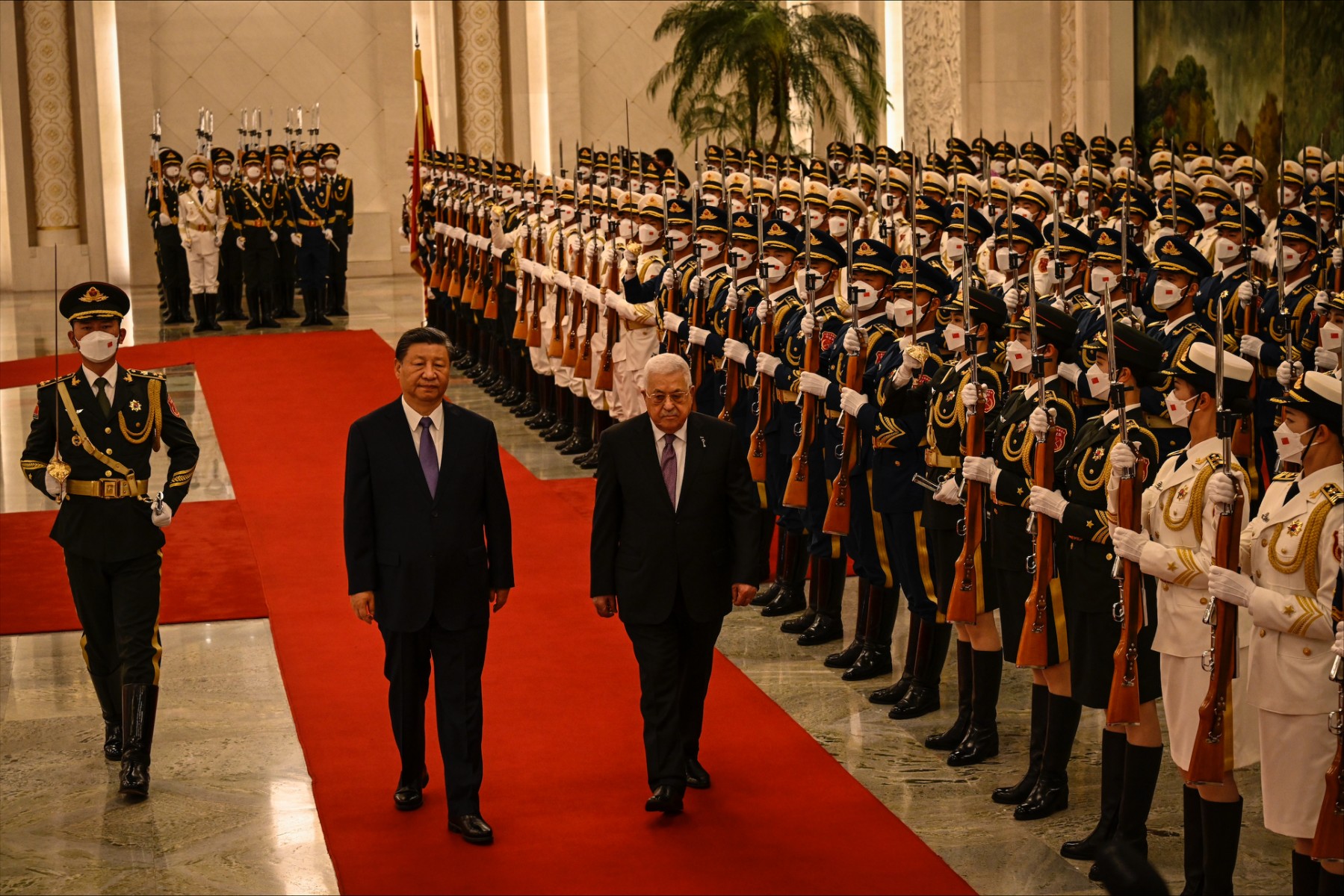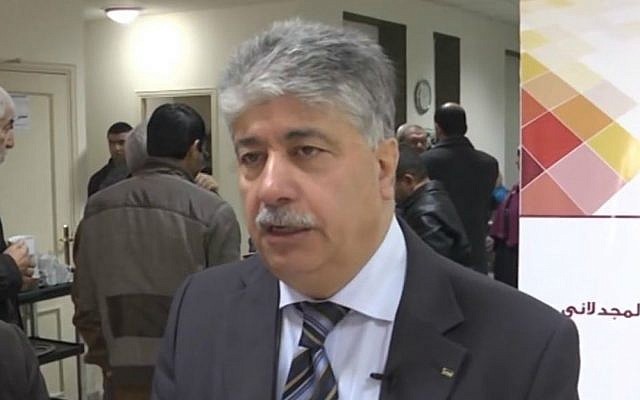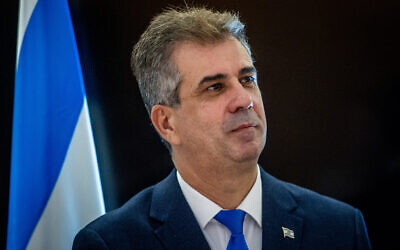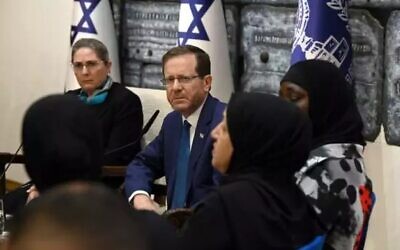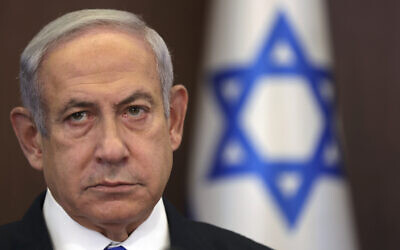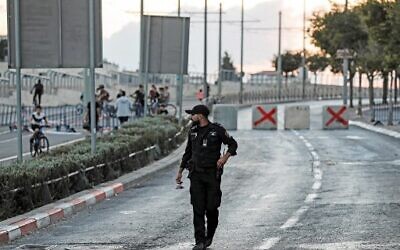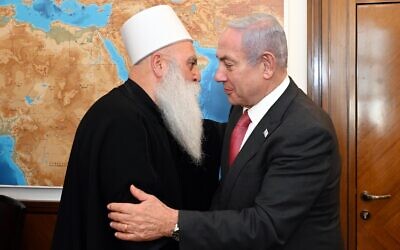RAMALLAH, West Bank — Fresh off brokering the restoration of ties between regional rivals Iran and Saudi Arabia, Chinese President Xi Jinping is looking to further bolster Beijing’s image as a power player in the Middle East.
Hosting Palestinian Authority President Mahmoud Abbas on Wednesday, Xi introduced another Chinese proposal for peace between Israel and the Palestinians.
The plan largely mirrors previous Chinese initiatives unveiled over the past decade: It calls for the creation of an international conference to promote peace talks aimed at establishing a sovereign Palestinian state along the pre-1967 lines and the funneling of significant amounts of international aid to sustain the new entity.
Prime Minister Benjamin Netanyahu, now heading the most right-wing government in Israel’s history, is sure to reject the proposal, as Jerusalem moves further away from accepting the land for peace notion.
But for Ramallah, China represents a far more desirable mediator than America, in which it no longer has much trust.
In a recent interview from his Ramallah office, PA Social Welfare Minister Ahmad Majdalani argued that China is in a better position to coax Israel into making concessions after the US has for years refused to apply such pressure.
“We don’t think the destiny of the world is in American hands. There are other emerging powers in the world,” said Majdalani, who heads the small Palestinian Popular Struggle Front party but has climbed the ranks within the PA and the Palestine Liberation Organization thanks to a close relationship with Abbas.
The 68-year-old PA minister depicted the US as a country in decline, one that has failed to apply its own standards on international law to Israel. He glossed over the bitter internal divides among Palestinians and the PA’s ongoing legitimacy crisis, compounded by Abbas’s failure to hold elections.
He did recognize that any broker or collective of mediators will have their work cut out for them, but insisted that the Palestinian people have patience and will secure their freedom in one way or another.
“We [just] marked the 75th anniversary of the Palestinian Nakba,” Majdalani said using the Arabic word for catastrophe, used to describe the establishment of Israel. “We can wait another 25 years.”

‘What frustrates us most about the US is the double standard’
The social welfare minister and Abbas confidant acknowledged that “expectations were very high” in Ramallah after Joe Biden was elected president two and a half years ago.
It marked the end of Donald Trump’s term in office, during which US-Palestinian ties reached new lows by every measure. Ramallah cut ties with Washington entirely after Trump recognized Jerusalem as Israel’s capital in 2017, while the former president went on to eliminate virtually all aid to the Palestinians.
Biden campaigned on restoring both humanitarian assistance to the Palestinians and diplomatic relations with their leadership.
He came through on both of those promises but has failed to keep his pledge to reopen the PLO’s diplomatic office in Washington and the US Consulate in Jerusalem, which were both shuttered by Trump. Biden also recommitted the US to support of the two-state solution, but Palestinians say he has not acted to preserve it.
For their part, Biden officials insist that they believe in the framework but argue that the conditions are not currently ripe for a high-stakes peace initiative and that they’d therefore rather focus on securing smaller gains in the interim.
But Majdalani refused to name a single positive contribution made by Biden since he entered the White House and accused his administration of repeatedly employing double standards in its dealings with Israel.
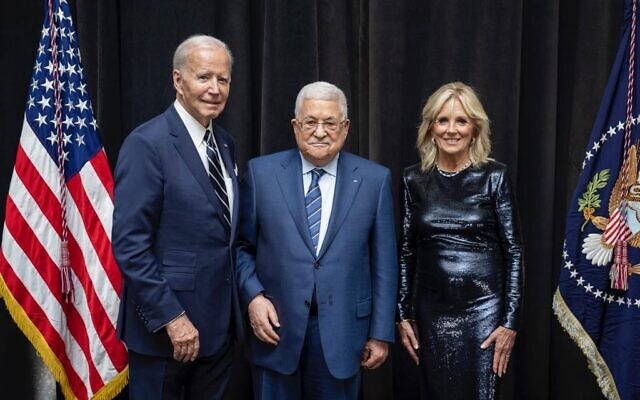
The PA minister said Washington’s foreign policy priorities had been elsewhere from day one and that the Palestinian issue had fallen even lower on the agenda following Russia’s invasion of Ukraine.
Indeed, Biden has avoided appointing a special envoy for the peace process as many of his predecessors have done. Instead, Secretary of State Anton Blinken announced last week that the administration would soon tap a point person tasked with expanding the Abraham Accords normalization agreements between Israel and its Arab neighbors, which Ramallah fears are being used by Jerusalem to bypass the Palestinian issue.
“The US doesn’t feel that the Israeli-Palestinian conflict impacts their interests, so they intervene only to maintain quiet because they don’t want escalation that would impact their other endeavors,” Majdalani said.
“What frustrates us most about the US is the double standard that they apply to the Palestinian people,” he continued. “They paid billions to support Ukraine to confront Russian occupation, all while supporting Israel’s occupation of the Palestinians.”
‘Able but unwilling’
Highlighting the US decision to weigh in heavily against the Netanyahu government’s proposed judicial overhaul, the PA minister argued that the Biden administration is more concerned by Israel’s internal situation than it is by the state of the Israeli-Palestinian conflict.
He pointed to recent Israeli-Palestinian meetings sponsored by the US, Egypt and Jordan in Aqaba and Sharm el-Sheikh whose primary goal was to halt the parties from pursuing unilateral measures opposed by the other side.
The Palestinians accuse Israel of violating those commitments, which included a four-month freeze on holding meetings to advance new settlement homes and a six-month freeze on legalizing new outposts.

Israel argues that it technically has not done either, but it has greenlit construction in East Jerusalem and also illegally transferred a yeshiva in the northern West Bank, in a step that could make way for the legalization of the Homesh outpost.
The four-month moratorium on advancing plans for new settlement homes will expire at the end of June and Israel has already informed the US it plans to greenlight thousands of new plans right around that time.
“The US administration is able to pressure the Israeli government but it is simply unwilling to do so,” Majdalani lamented.
Asked why Ramallah hasn’t in turn cut ties with Biden as it did with Trump, the minister said that there are various political considerations in play but that the PA would take that step if the current administration “becomes like Trump.”
“When we ended the relationship with Trump, the Palestinian people survived and the Palestinian leadership was not isolated from the world,” he said.
“We have no illusions and do not expect that this US administration can be the sole sponsor for the peace process. It lost the legitimacy to lead such a process. Our choice today is a multilateral sponsorship of the peace process, whether through reactivating the Quartet or convening an international peace conference” akin to the one proposed by China, Majdalani explained.
But the PA minister said the Biden administration has blocked the Quartet — comprising representatives from the United Nations, the European Union, the United States and Russia — from reconvening amid its effort to isolate Moscow over its war in Ukraine.
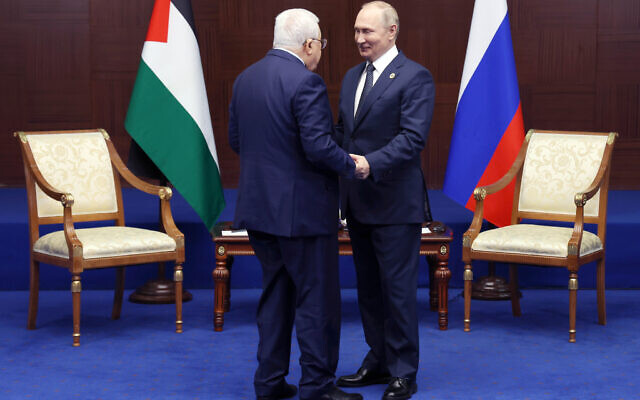
Turning to China
Asked how Ramallah is adapting its strategy for achieving statehood given the various obstacles, Majdalani said it is turning to China and even Russia for assistance.
Abbas met with Russian President Vladimir Putin in October and deeply angered the Biden administration when he used the opportunity to publicly slight the US.
Majdalani framed the Iran-Saudi Arabia normalization deal inked in March as “the starting point of the decline of American hegemony in the region.”
He also pointed to the rise of the BRICS alliance of Brazil, Russia, India, China, and South Africa, which has sought to present a foil to the Western forum consisting of Canada, France, Germany, Italy, Japan, the UK and the US.
BRICS countries currently contribute 31.5 percent of global GDP based on purchasing power parity, while the G7’s rate has fallen to 30.7%.
While the US has long been viewed as a superpower, history has shown that superpowers can fall, Majdalani noted. “The economic situation in the US today is not much better than what it was before the collapse of the former Soviet Union.”
Accordingly, the PA minister maintained that China is in a better place to help mediate between Israelis and Palestinians.
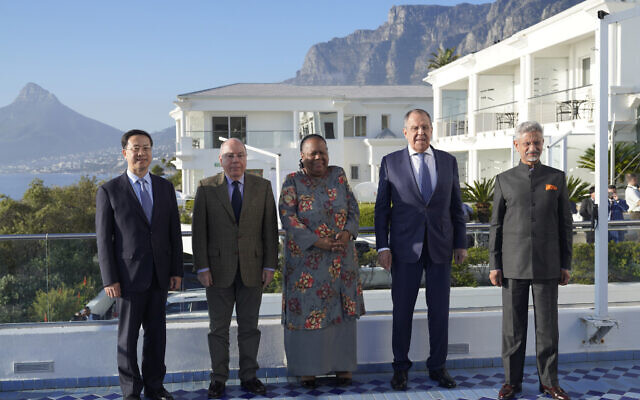
“Israel has important ties and interests with China, including billions of dollars worth in projects and investments,” Majdalani said, arguing that these could be leveraged by Beijing to coax Israel into compromise.
But Israel has long prioritized its strategic relationship with the US, which it wouldn’t want to jeopardize by legitimizing China’s role as a global mediator.
Still, Majdalani insisted that the US gives far more than it gets in its ties with Israel and that it “will not forever be willing to support and protect” the Jewish state.
Pressed to explain why China’s latest peace proposal is any more likely to succeed than its previous ones, Majdalani said it includes “mechanisms for implementation” but declined to elaborate on what those were.
‘Who said that we should fear the future?’
As for the PA, which has hemorrhaged support in recent years, Majdalani downplayed its importance. “The Palestinian Authority is merely a tool that the Palestinian people have. What matters more is the Palestinian people and the Palestine Liberation Organization,” said the minister, who is also one of 18 members on the PLO’s Executive Committee, which is largely controlled by Abbas as well.
“The PA is only an instrument that was created for a transitional period. It was not meant to be permanent,” he said of the body that was born out of the 1994 Oslo Accords.
Chinese FM Reiterates Support to Independent Palestine State
Chinese FM Reiterates Support to Independent Palestine StateChina firmly supports the two-state solution and the establishment of an independent State of Palestine, which enjoys full sovereignty on the basis of the 1967 borders and with East Jerusalem as its capital, Foreign Minister Wang Yi said on Friday. Wang made the remarks during a meeting with Ahmed Majdalani and Nabil Shaath, who came to China as representatives of the Palestinian president. http://www.cctvplus.com/news/20171223/8069308.shtml#!language=1
Posted by CCTV+ on Saturday, December 23, 2017
Despite maintaining that “Palestinians don’t have illusions that the near future will bring solutions,” Majdalani did not indicate concern regarding what lies ahead for his movement. “Who said that we should fear the future? In my opinion, it is Israel that should fear for the future, not the Palestinians.”
“Israel faces three choices: A two-state solution, an apartheid state, or one democratic state. We are prepared for each of these options,” he said.

